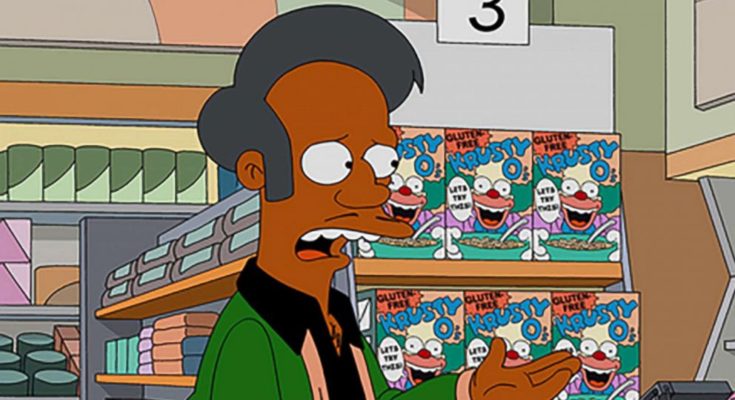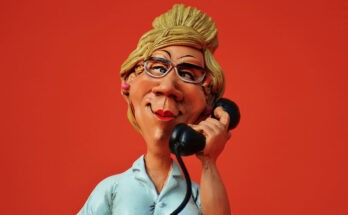The Simpsons animated television show is an ideal platform for measuring political correctness and corresponding outrage levels. The show has been airing for nearly 30-consecutive years and is based entirely on the comedy of cheap stereotypes. Every character on the show is a cliche representation to help illustrate the absurdness of modern Western culture. The show’s audience understands the purpose of the two-dimensional characters, and it is not racial or cultural slurs; it’s quite the opposite. The Simpsons universe prompts viewers to note the idiocy of superficial conventions, and distance themselves from the ignorant — the very purpose of satire.
The Simpsons isn’t a genius show, but there is a genius in how it’s managed to maintain its singular premise through decades of changing political times and evolving zeitgeist. You can harken back to Norman Lear’s All in the Family in the early 1970’s to see the breeding ground for television comedy as cultural commmentary. The Simpsons follows a decidedly liberal subtext of what modernity would call “inclusiveness” by painting the small-mindedness of prejudice and discrimination. You might call this the more thoughtful approach to messaging. Though thoughtfulness has no place in the current frenzy on-the-nose partisan divides. Hence, The Simpsons is facing the pitchfork and torch mob for the appearance of offending a protected demographic.
Apu Nahasapeemapetilon is the “East Indian” character on The Simpsons. His name was inspired from an Indian-born friend of one of the original show writers. It already sounds hateful. The entire cast of Simpsons characters are composites of unflattering portraits of two dimensional stereotypes — “proselytizing born again Christian”, “fat white barfly”, “Scottish blowhard”, “evil corporate megalomaniac”, “wimpy nerd”, “Italian mobster”, “”fat donut eating cop”, “creepy clown” “corrupt Mayor”, “empty-headed TV anchorman” — and that’s the side characters. The Simpsons nuclear family consists of oafish idiot father, passively concerned mother, well meaning but delinquent son, know-it-all daughter, and a baby that never grows up. Nobody grows up, that’s the point of the show. A circus of on-the-nose characters with which to create pointed social comedy. A circus in which the social media moralists now insist Apu is the tormented elephant.
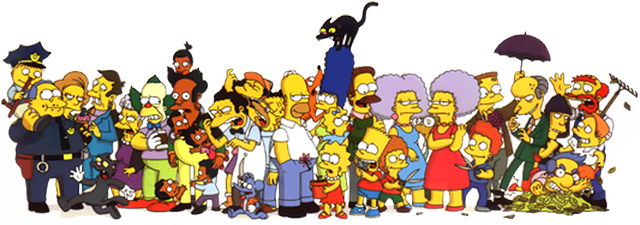
To understand the flimsy premise of the current Apu controversy, you must first understand the Hollywood progressive composition of The Simpsons show creators, producers, writers, and performers through the years. This is not the Lutheran Church produced, Davey and Goliath animation of the 1960’s sharing obvious moral lessons from the bible. This is a show produced through the prism of some of the entertainment industry’s most outspoken, prominent, and leading figures in the Left of our current political divide. Such a partisan affiliation hardly prevents one from being small-minded, vicious, or otherwise intellectually dishonest, but it’s a relevant indicator of expressed intentions. If some far right production media entity put out a show with laughable ethnic stereotypes, you might be inclined to suggest some unkind motivation. In the case of The Simpsons, ill-intention is clearly not there. The writers and producers simply find Apu serves their creative purpose; that most evil cause of making people laugh.
Ironically, Apu objectively may be the single most successful character amid the cast of stereotypical characters on the show. Apu made his debut in the very first season of The Simpsons and has remained a steady, kindly, positive voice ever since. Apu is defined as being a highly educated, Ph.D in numerous sciences from a fictitious country on the Asian subcontinent. Apu is an illegal immigrant to the United States, an issue resolved in later seasons to the political vantage point of favorable to undocumented immigrants. Apu works in the Springfield (Simpson’s fictional town) Kwik-E-Mart, a 7-Eleven parody complete with the brown-skinned guy with the funny Anglo-accent behind the counter.
This cliche is born from the fact that East Indians and Pakistanis bought their way into numerous such American (and British) convenience stores in large numbers during the 1980’s. There are numerous purported explanations for this phenomena, including settled immigrants helping others from similar regions back home into specific lines of businesses. Another proffered explanation is that immigrants from the subcontinent speak English, and as opposed to competing immigrant groups, Indian and Pakistani immigrants were able to enter into a retail space that requires native language competency.
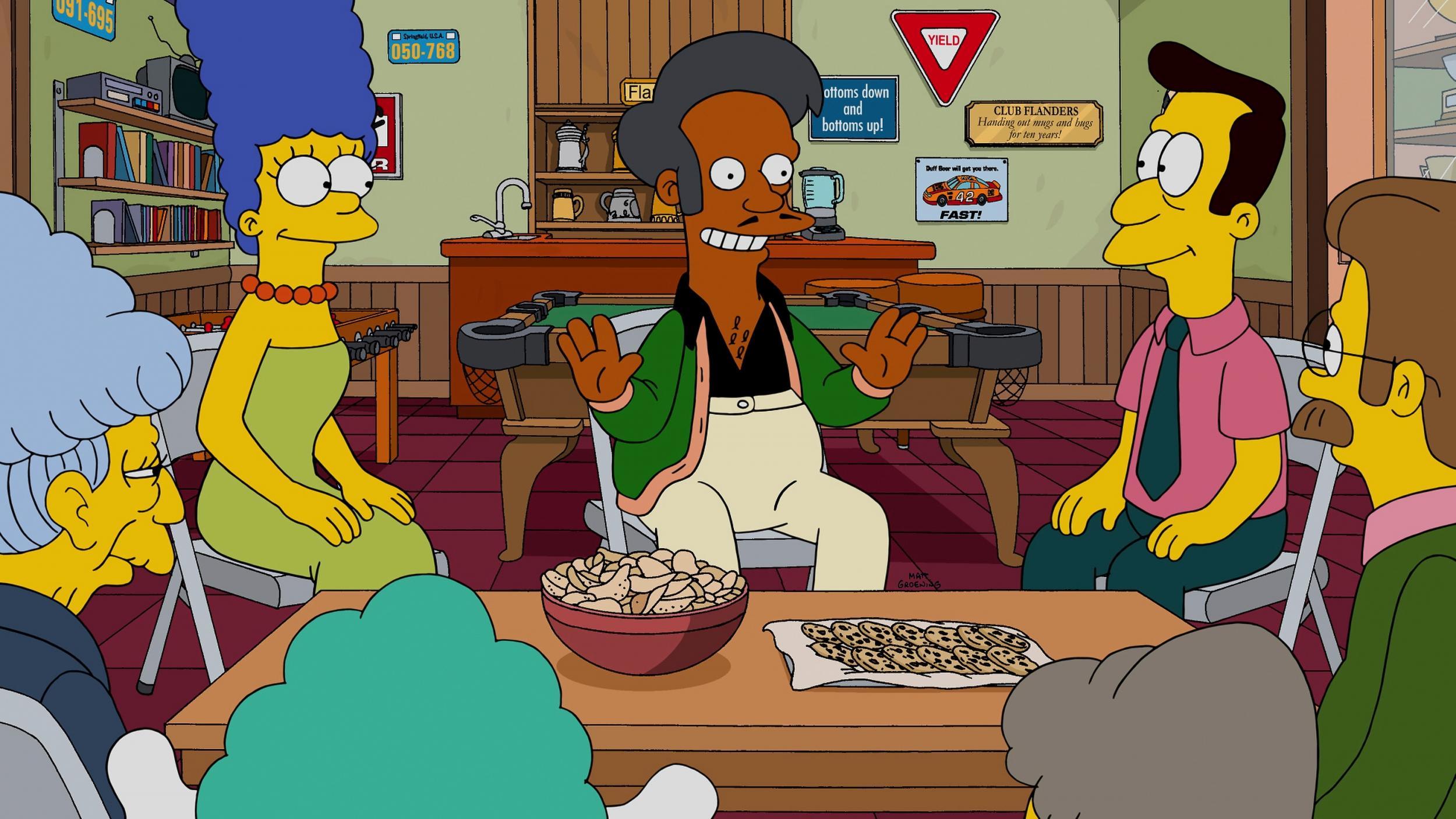
Apu is an overly-kindly gentleman who despite his educational background and intelligence prefers to remain at the Kwik-E-Mart because he loves his adopted hometown and its denizen. In a town of blatantly malicious, self-interested, beer drinking slobs, Apu stands out as idyllic and pure. To wit, Apu is revealed to be a vegan, the height of progressive evolution. Like all the other characters on the show, Apu’s subject to stereotypical rendering, but compared to Homer Simpson, the corpulent blue collar numbskull, Apu is an outright saint. He’s the literal voice of reason on the show when writers wish to send a social message.
None of which matters to the self-appointed witch hunters among us who talk loudly and carry a heavy stick in relation to media company responsiveness. Reason has no place in the game of hyperbolic victimization.
While the Indian (now politically correctly referred to as “South Asian”) character of Apu has received some backlash from Indian and Pakistani-American quarters in the past several years, it wasn’t until Indian-American comedian Hari Kondabolu made YouTube pieces and interviews, and more recently, a full documentary, The Problem with Apu, about the deleterious effects of the Apu stereotype on Indian immigrant children, that anti-Apu sentiment became a controversy requiring mainstream and social media response.
Kondabolu partnered up with actor and comedian peers of South Asian descent to publicize how the Apu caricature is less funny when you’re being mocked for it as a kid, let alone being asked to duplicate the ignorant cliche for East Indian roles being cast in film and television.
That seems like a reasonable complaint. If you go back to Robert Townsend’s film, Hollywood Shuffle, 1987, Townsend satires the racial stereotyping of black actors in Hollywood for roles limited to pimps and gang members. In the film, Townsend’s character learns that the more ridiculously cliche he makes his black pimp character, the more white Hollywood responds positively. The satire is clearly rooted in the truth of a flawed human reality. You can imagine that Apu is something that many Indian-ancestry families living in the United States find far less amusing than non-Indians who laugh at the silliness without the cultural understanding of why it might be painful.
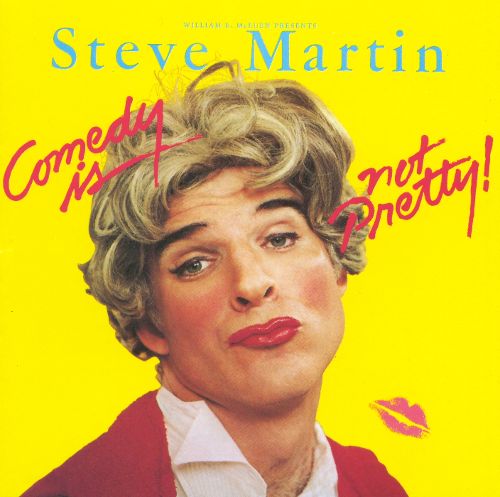
Which brings us to the plight of comedy — all comedy. As Steve Martin joked in the late 1970’s with the very name of his comedy album, “Comedy Is Not Pretty!”. The basis of all comedy is mockery. There is a butt of every joke. Whether that be a mean boss slipping on a banana peel or highbrow intellectual satire, somebody is the recipient of a certain amount of pain. When the butt is Hitler or Kim Jong-Un or for the vast majority of late night talk show viewers, Donald Trump, people ignore the derision inflicted on the recipient. When the butt is of a nature able to garner sympathy in some broader cultural venue, then the recipient rises to level of victim. Suddenly, humor is seen for what it always is, an attack. And vicious and uncalled for at that. In a just society, you really want your core principles to be flexible and subjective.
There is no doubt a long history of ethnic and racial minorities and other disenfranchised minorities being the subject of cheap humor for the very reason that it was safe and easy laughs. Just as there is no doubt in current times that men, specifically white males, are the new safe and easy laugh for Hollywood and popular media. In my recent article, The Beta Male Conspiracy, I discussed how the entertainment industry has turned masculinity, males, and dads into the new stereotypical buffoons. There’s a hateful agenda behind such decisions, though largely both are a reflection of the laziness and timidity of the media sector in choosing their targets.
Immigration activist, Ali Noorani, penned a recent opinion piece for CNN wherein he wanted to assure readers that he was all for cultural humor, but simply that it must never hurt anybody’s feelings:
Because if there was ever a time we need to laugh at and with one another with respect, it is now.
The logical fallacy is twofold. First in thinking that comedy only has positive value if nobody is offended, despite that being its very essence, and second, that The Simpsons doesn’t already at least closely approximate the sentiment of his position. The point of the show is for everybody to laugh at one another. All people are targets for the very reason that nobody should feel especially targeted. Clearly, activists representing any number of demographic interests could point to a negative portrayal of their ancestry on The Simpsons. Though as mentioned, Apu is clearly one of the most obviously uplifting characters on the show. Most are ignoramus, hypocritical drunks. Apu’s faring fairly well.
The Simpsons’ producers have managed to maintain some modicum of artistic defense of the Apu character in their show. In a episode this season wherein the aggrieved social media activists believed the cartoon was going to mea culpa the hell out of themselves for mocking South Asians (nee East Indians), the show characters rather slyly noted that the Apu character was created in 1989 when different cultural and comedy mores existed and that people ought take that into account in 2018 when assigning derisive-motives to show creators. This seemed like a rather rational point to make, and rational points necessarily results in angry blowback on Twitter. Social media activists demanded a full kowtow and only received a minor nod. Kaboom.
In contrast, actor Hank Azaria, who voices the character of Apu on the show since its inception, has chosen to rend the garments in a tortured apology process. Azaria began with what appears to be a fairly substantial rewrite of history, claiming that when he was first asked to voice Apu in season one of the show, he strongly disagreed with the Indian caricature. Azaria insists he was bullied into the stereotyping by show producers who found it funnier and funnier the deeper he dove into the cliche voice. In previous interviews, Azaria has mentioned that he based the accent on actual Indian convenience store managers he had met around L.A.. It’s hard to know who’s telling the truth. Ultimately, it doesn’t matter. Though it’s worth noting in the hashtag movement era, the guy who’s made $50 million and won several Emmy’s through the years in a job he suddenly finds injurious to the aggrieved is to be viewed with heavy suspicion.
Azaria visited Stephen Colbert’s show for a stop on his Apu apology tour wherein he repeated his role as hapless dupe vis-à-vis Apu and noted that the solution would be for the show to hire more South Asian writers. As if each character on the animated show would require a half-dozen or so similar demographic writers on the team to point out and promote cultural sensitivities. Maybe 50 or so writers in total would do the trick, Balkanized into their representation groups, ensuring that new Simpsons’ episodes would be entirely free of culturally insensitive characterizations. And thus, comedy lays down its head and dies a final death.
The South Asian activists and those Tweeting on their behalf will tell you that not all interest groups are created equal and that minority interests must be protected from ridicule and jokes more than “empowered” groups. There’s a theoretical value to this point, but nothing that is the least bit practical. While you shouldn’t want to see the powerful takedown the disenfranchised, the labels are entirely subjective. Somebody is always the butt of the jokes and if the butts can always self-identify as victims, the butts will have the ability to shut down all jokes. If you don’t believe this, look at how Sarah Huckabee Sanders jokes go over. She’s a powerful women by profession but the hue and cry over any humor at her expenses is massive. When “protected” is in the eye of the beholder, then inevitably everybody will conveniently behold it.
The single sensible point in Noorani’s somewhat juvenile piece in CNN is that humor of stereotypes like Apu runs the risk of becoming lazy and irrelevant. That’s a fact. If I read a script now in 2018 that featured an Indian or Pakistani character at a convenience store with a funny accent, my first note would be, “this is tired”. In 1989 it was fresher. Which was the creative of the Simpsons’ producers in that recent episode. The entire cast of characters was fresher in 1989, which is now something of the point of the show. It never changes. The audience has long since gone from laughing at the characters to laughing with them. It’s a long running, inside joke.
Attempting to kill off Apu because he offends somebody means we must kill off all characters. We must end a show that stands out on network television as one that hasn’t been pushed through the politically correct scrub that very nearly is the most important facet of network television development in 2018. Television content still funded through advertising models can no longer offend anybody. The Simpsons would never be picked up again as a new show because we are regressing as a society in our relation to tolerate humor, satire, and hard truths. We are fast becoming a collective of self-interest activists with the end goal of producing victimization rather than inspiration. This kind of snake inevitably eats its own tail. Starting with comedy. It’s not pretty. What a grand world we are ruining.

